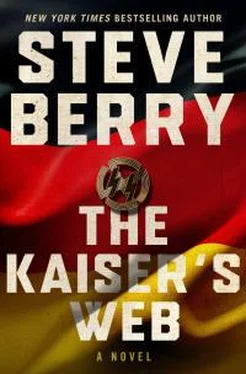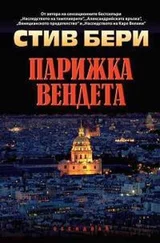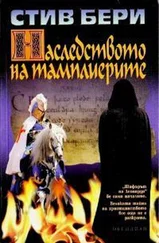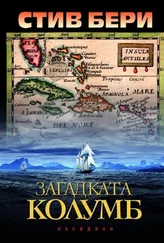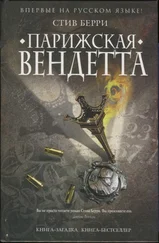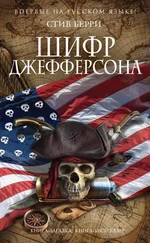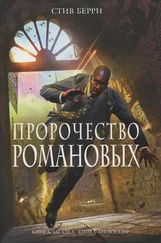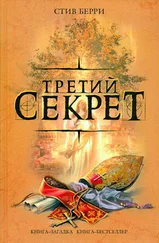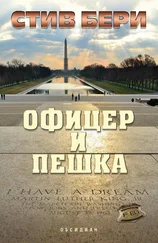Hitler, he says, lived in a fantasy world. One that was easy to manipulate. Especially once he knew all of Hitler’s weaknesses and understood how to nourish the man’s self-satisfaction.
“Never let anyone know your weaknesses,” he cautions. “It is fatal.”
In another volume, a book about him, he took great delight in all the inaccuracies. “Everyone should be allowed to read their own biography,” he says. The writer described him as “a personality without needs,” calling him “overly diligent, eager to serve, and could easily assume another’s idea without distorting it with his own.” With that conclusion he was quite amused. National Socialism, he tells me, was merely an instrument for his ambition, not a cause to die for. Which was why he was still alive and Hitler, Goebbels, Göring, Himmler, and all the rest were dead. He tells me nothing of what he desires. I know that he meets regularly with a group of local men, but I am not included in their discussions. Which is fine. I do not care to know anything.
A rusty condor flapped its wings in the sky ahead.
Cotton banked the Cessna and overflew metropolitan Bloemfontein. It was a city of nearly six hundred thousand, the buildings a delightful hodgepodge of British, Mediterranean, Renaissance, and classical architecture. A tree-filled central square served as the nexus for what appeared to be the oldest part of town. Cars, trucks, and buses clogged the highways like ants on a log. The airport sat about five miles east of town and he contacted the tower for landing instructions. The tower responded to his radio contact and told him to circle the field once, then await instructions.
Two commercial flights were ahead of him.
He vectored north and began a long swing around the runway.
An SAA Airbus lumbered in the sky a few miles to the east, landing gear down, making its final approach to a pitted tarmac.
The tower told him to follow it down.
And land next.
CHAPTER FORTY
Engle unfastened his seat belt and rose. The SAA flight from Cape Town to Bloemfontein in the aging Airbus had been rough, nothing like the smooth crossing of the Atlantic by private jet. He’d caught the flight in Buenos Aires after a short hop across Argentina on a LATAM commuter from Puerto Montt. He was grateful to get a seat. The experience with Ada, if nothing else, had hammered home the value of vigilance and the price of expediency.
He stood in the cramped cabin and allowed other passengers to make their way out. He wasn’t in a hurry, so there was no need for appearing to be. Theodor Pohl’s rebuke from yesterday still rang in his ears. He’d called his employer and reported all of the deaths, along with the bad news of what had happened.
“You realize there is little chance of restarting this matter in time,” Pohl had said. “That insane old woman may cost me the chancellorship.”
“We’ve used her before with no problems. But the last time there had to be a killing, which you approved. She took that personally.”
The loss of the schlöss had not been received well, either.
“That house has stood for sixty years,” Pohl had said. “It was a special place.”
“But it presented a risk, once exposed by Ada. I decided to eliminate it.”
“How generous you are in destroying expensive assets. It was worth millions. And what of Ada?”
“I will deal with her when this is over. Right now, I’ve already booked a flight to Cape Town. I’ll be in Africa tomorrow.”
“Find out if there is anything on that end that requires attention. There should not be, but that old woman knew far more than she should. And I’m worried. There should be nothing in Africa that poses any problems. Gerhard Schüb is dead. But God knows, I don’t want any more firsthand evidence surfacing. No more letters. Or any writings. Understood?”
“Perfectly.”
“Make sure Africa is sterile. The good thing is that the financial angle is now in play. At least that went right, and it may be enough to accomplish our goal. Deal with Africa, then get back here. And Josef.” Pohl paused for a moment, and he knew what was coming. “Don’t disappoint me again.”
The last of the passengers filed out toward the front of the plane.
He followed.
He would not disappoint Pohl again. But more important, he would not disappoint himself. He’d planned everything so carefully. It should have worked. It was working. Just one miscalculation with Ada. At least he’d eliminated Cotton Malone and Cassiopeia Vitt. Juan Vergara, too, and his nosy minions. Only Africa remained.
Which should not be a problem.
He mentally clicked off what needed to be done in the hours ahead.
Clear customs. Retrieve his luggage. Rent a car.
Then drive south to Nohana.
And make sure there was nothing to find.
Cotton was driving a Range Rover rented at the airport. Cassiopeia sat in the passenger seat and navigated them down President Brand Street in central Bloemfontein. The boulevard was clogged with slow-moving traffic. They’d made one stop at a department store and purchased changes of clothing, since they’d traveled from the relative cool of the Chilean mountains to the heat of southern Africa. Light cotton pants and shirts and a supply of thin socks and hiking boots made for a decided difference. Cotton also detoured to an ATM and obtained enough rands to get them through the days ahead.
The information they knew with certainty was sketchy.
Martin Bormann and Eva Braun, alias Luis and Rikka Soreno, along with Gerhard Schüb had apparently lived in and around Bloemfontein from their arrival in 1949 until sometime in 1952, when they moved deeper into what was then called the Orange Free State. Schüb’s letters repeatedly mentioned the town of Paarl, yet that location was no longer denoted on any map for the current Free State. So the first thing they needed to determine was Paarl’s present designation.
After parking the Range Rover on a side street, he and Cassiopeia searched the array of drab concrete government buildings, but everything was closed for the weekend. They did locate a tourist office that was doing a brisk business with visitors milling in and out. Inside, a smiling African woman unrolled various old 20th-century maps of the local district and found Paarl, lying about fifty miles southeast of Bloemfontein, but by the late 1980s its name had been changed.
“That’s Nohana today,” the woman said. “A lovely town. Near the mountains, where it is cool. Oh, how I wish I were there.”
“Are there farms in the area?” he asked.
“Many. It is a fertile place. Lots of trees and hills. I have many times visited.”
She told them more about the area and suggested a route south on highway N6, then up into the mountains on R26. They thanked her for the information and left. Outside, in the stifling heat of midday, Cotton, too, wished he was in the mountains.
“We should have asked her about death records,” Cassiopeia said, “and where to find them on Monday. You never know. We could get lucky.”
He agreed.
So they stepped back inside and learned from the woman that birth and death records were maintained statewide in a building three blocks over.
“But entries are not the best from that time,” she said. “Only recently has the state started keeping quality records. Many once died on the veld, their deaths never recorded anywhere.”
And he’d be shocked if there was a death entry for Luis or Rikka Soreno. It would have been unlike Martin Bormann to take such precautions in life, then leave a remnant of himself so easy to find in death. He, along with Braun, probably died on the veld, buried in an unmarked grave.
Читать дальше
